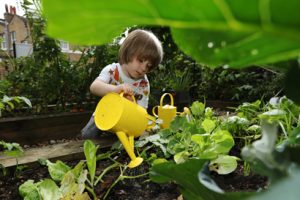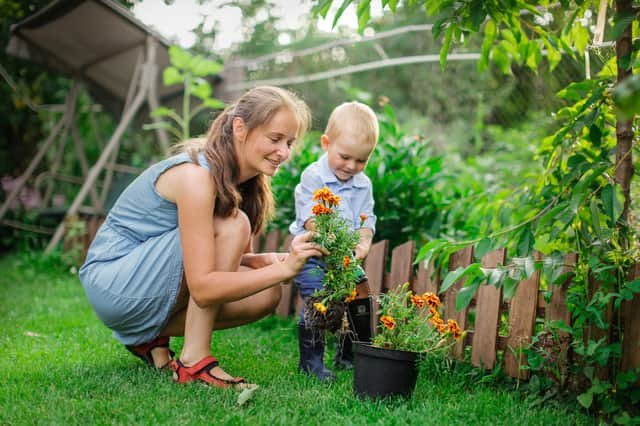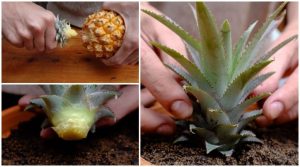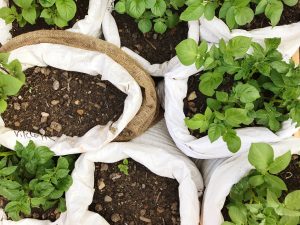Picture this: a lush, vibrant garden teeming with colorful flowers, buzzing bees, and plump, juicy tomatoes. Now imagine that same garden being the key to saving our planet. Sounds too good to be true? Think again. In this age of climate change and environmental crisis, gardening has emerged as an unexpected hero. Beyond just beautifying our surroundings, it has the power to heal our wounded ecosystems, fight pollution, and restore balance to nature. So grab your gloves and spade because we’re about to uncover why gardening is not only good for the soul but also a game-changer for the environment.
Reducing Carbon Footprint Through Gardening Practices
- One of the most effective ways to reduce our carbon footprint is through gardening practices. By growing our own food and cultivating green spaces, we can directly impact the environment in a positive way. Firstly, gardening eliminates the need for transportation and packaging associated with store-bought produce. This significantly reduces carbon emissions from vehicles used to transport goods, as well as the energy required for processing and packaging food. Additionally, when we grow our own fruits and vegetables organically, we avoid the use of harmful pesticides and synthetic fertilizers that contribute to greenhouse gas emissions.
- Furthermore, gardens act as natural carbon sinks by absorbing carbon dioxide from the atmosphere through photosynthesis. This process helps combat climate change by reducing greenhouse gas levels in our immediate surroundings. Aside from this crucial environmental benefit, gardens also create habitats for wildlife such as bees, butterflies, birds, and other beneficial insects. These creatures play important roles in pollination and pest control systems that are essential for plant health and biodiversity conservation.
- Lastly, practicing sustainable gardening techniques can further minimize our carbon footprint. Composting kitchen scraps or yard waste instead of sending them to landfills significantly decreases methane emission – a potent greenhouse gas generated by decomposing organic waste in anaerobic conditions.
Ultimately, embracing gardening not only nourishes us with fresh produce but is also an active step towards preserving our planet’s delicate ecosystem. By implementing these environmentally friendly practices on both small-scale home gardens and larger community plots, we can make significant strides in reducing our carbon footprint while reconnecting with nature’s abundant

Promoting Biodiversity And Habitat Creation In Gardens
Gardens, no matter how small or big, have the incredible potential to promote biodiversity and create habitats for a variety of species. By carefully selecting native plants that provide food and shelter for pollinators, birds, and other wildlife, gardeners can contribute significantly to conserving local ecosystems. Beyond just adding visual beauty to outdoor spaces, these green havens act as vital stepping stones in connecting fragmented habitats.
Creating a diverse range of microhabitats within your garden can further support biodiversity. Incorporating elements such as log piles, bird boxes, insect hotels, and ponds can offer refuge for a wide array of creatures. These features not only attract more species but also encourage natural pest control by attracting predators like beneficial insects and birds. Embracing the concept of gardening as a means to coexist with nature rather than purely taming it opens up endless possibilities for creating vibrant and thriving ecosystems in our own backyards.
Improving Air And Water Quality Through Gardening
- One often overlooked benefit of gardening is its potential to improve air and water quality. As plants go through photosynthesis, they absorb carbon dioxide and release oxygen, effectively reducing the amount of greenhouse gases in the atmosphere. This not only helps combat climate change but also leads to cleaner air for us to breathe. Additionally, certain types of plants have the ability to filter contaminants from water, helping to purify it before it reaches our rivers, lakes, and oceans.
- Another way that gardening can contribute to better air quality is by creating green spaces within urban areas. These green spaces act as natural filters by trapping dust particles and absorbing pollutants emitted by vehicles and industrial activities. By strategically planting trees and shrubs in urban environments, we can mitigate the harmful effects of air pollution on human health.
In terms of water quality improvement, rain gardens are an effective solution. These specially designed gardens consist of deep-rooted plants that soak up stormwater runoff from roofs, streets, and sidewalks before it enters nearby bodies of water. By doing so, rain gardens help filter out pollutants such as oil residue from roads or chemicals from rooftops before they contaminate our lakes and rivers.

Using Organic Gardening Methods To Protect The Environment
Organic gardening methods offer a solution to two pressing issues: promoting the health of our planet and creating healthier, chemical-free produce. By choosing not to use synthetic fertilizers, pesticides, and herbicides, organic gardeners are able to protect the environment from harmful chemicals that can leach into water sources and disrupt ecosystems. Organic practices also promote biodiversity by encouraging beneficial insects, birds, and other animals to inhabit the garden. This leads to a natural balance where pests are kept in check without resorting to harmful pesticides.
Another significant environmental benefit of organic gardening is soil preservation. Chemical fertilizers can deplete the nutrients in soil over time, making it less fertile and more prone to erosion. In contrast, organic methods focus on building healthy soil through composting and incorporating organic matter into it. This helps retain moisture in the soil, reduces water runoff during heavy rains that could cause erosion, and enhances its ability to store carbon dioxide – an important step in mitigating climate change. Additionally, embracing sustainable gardening practices like crop rotation ensures that soil depletion is minimized while maintaining natural fertility levels.
Conclusion:
In conclusion, gardening has proven to have a positive impact on the environment in numerous ways. Firstly, it promotes biodiversity by providing a habitat for various plant and animal species. By creating garden spaces with diverse plant selections, we can attract different insects, birds, and pollinators, contributing to a healthy and balanced ecosystem. Additionally, gardening helps in mitigating climate change through carbon sequestration. Plants act as natural filters by absorbing CO2 from the atmosphere during photosynthesis and storing it within their tissues.
Furthermore, gardening fosters sustainable practices by reducing the dependence on chemical pesticides and fertilizers. Organic gardening methods such as composting and crop rotation help maintain soil health without harming the environment or depleting natural resources. By adopting these approaches in our gardens, we can contribute to healthier watersheds as well since harmful chemicals won’t leach into rivers or groundwater supplies.
Overall, gardening offers us an opportunity to connect with nature while making a positive impact on our surroundings. It not only enhances our living spaces but also creates an environmentally friendly haven for wildlife and promotes sustainable practices that benefit the planet as a whole. So why not grab your tools and start digging? Your little garden might just be the catalyst for significant environmental change.






Be First to Comment